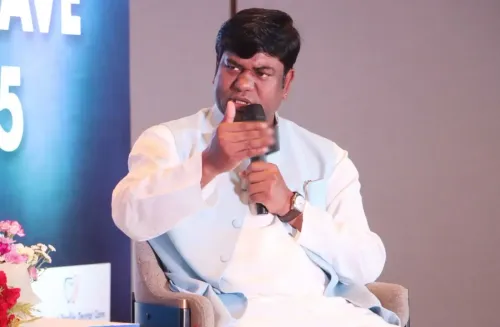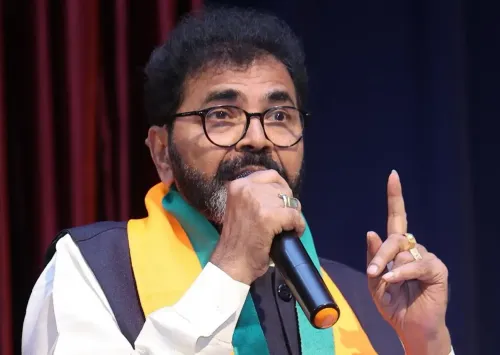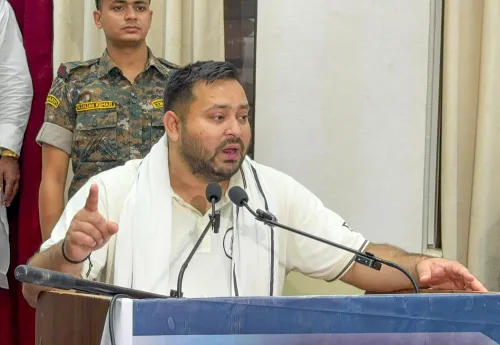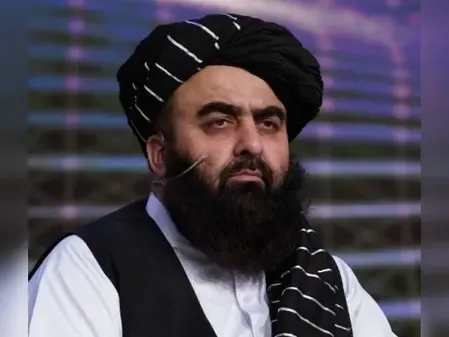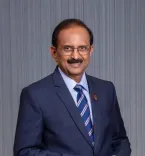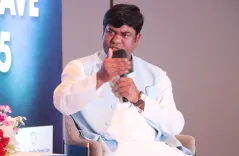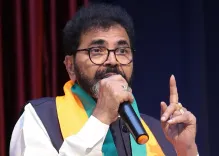How is Education Key to Eradicating Poverty, As per Rajasthan Guv?
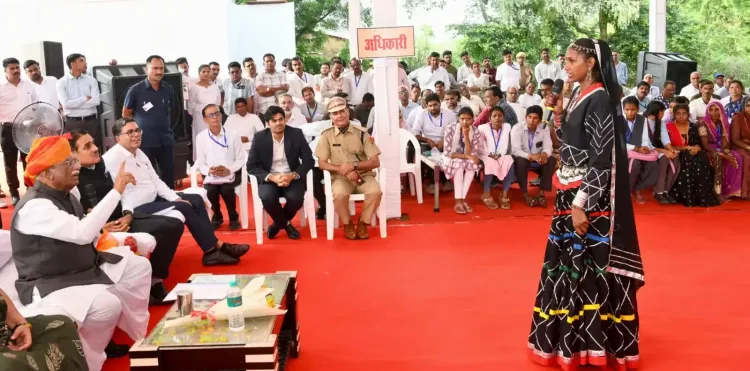
Synopsis
Key Takeaways
- Education is essential for poverty eradication.
- Support your children's educational journeys.
- Government schemes must reach every eligible individual.
- Engagement in cultural traditions is vital.
- Utilize free resources like residential schools.
Jaipur, Aug 16 (NationPress) Rajasthan Governor Haribhau Bagde made a significant visit to the tribal village of Baroda in Salumber district on Saturday, where he took part in a night Chaupal and engaged in open conversations with the local tribal community.
The Governor received a heartfelt welcome from students of the Eklavya Model Residential School, who honored him with traditional folk performances.
Sitting on a charpoy, Governor Bagde keenly observed the culturally rich Gavari dance of Mewar, showing a genuine interest in the Bhil community's traditional dramatic rituals.
During the Chaupal, the Governor interacted with villagers and beneficiaries of various government welfare initiatives, urging them to maximize the benefits available to them.
He instructed the officials present to guarantee that government schemes reach every eligible individual.
In his address, Governor Bagde emphasized the rich heritage of the region, stating, “The land of Mewar is the land of heroes. The tribal community significantly aided Maharana Pratap in his fight against the Mughals. We must always honor their contributions.”
Highlighting the critical role of education, the Governor asserted that it is the sole avenue for genuine upliftment and the elimination of poverty.
“Do not arrange marriages for your children before they finish higher education. Support them in their academic pursuits. Education can pave the way for your children to become doctors, engineers, and high-ranking officials.”
Referencing the Rajasthani proverb, “Put Sikhave Palne,” which translates to ‘a child learns from the cradle,’ Bagde urged parents to prioritize education from an early age.
He encouraged families to fully utilize government-operated residential schools and hostels, which offer free quality education and facilities for children from tribal and economically disadvantaged backgrounds.

